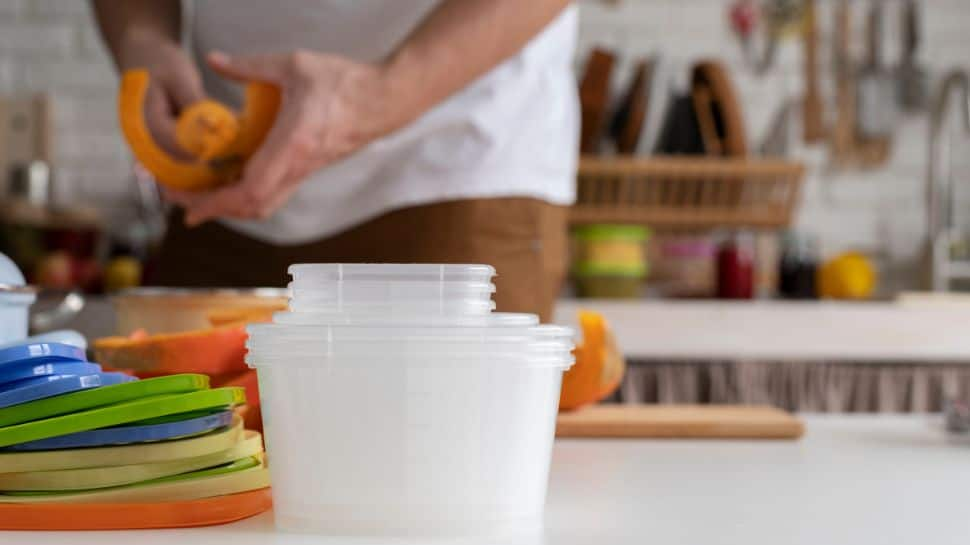While we are often told that using plastic in kitchen can be harmful for health, the ease of availability and use often means we end up heavily depending on plastic containers – be it to cook, heat or store food items. But experts warn that this can have long-term and severe health complications.
Damaging Impact Of Plastic
According to leading medical journals such as The Lancet and The New England Journal of Medicine, micro and nano particles from plastics, particularly chemicals like Diethylhexyl Phthalates (DEHP), used to make plastic flexible, are now being found within the human body. These chemicals, present in everyday items like food containers, PET bottles, and even medical equipment, have been linked to over 3.5 lakh cardiovascular deaths globally in a single year.
Dr Nagesh H E, Consultant – Cardiology, Manipal Hospital Malleshwaram, says, “Once these particles enter the body, through food, water, or in rare cases, skin contact, they can cause inflammation in blood vessels, damage the endothelial lining, and lead to clot formation, increasing the risk of heart attacks and strokes.
Is Storing Dry Food In Plastic Containers As Harmful?
Storing dry food or cold water in plastic containers is relatively safer, provided they are kept away from heat and direct sunlight, says Dr Nagesh. “The real danger arises when food is stored hot or heated directly in plastic containers, which can accelerate the leaching of harmful chemicals. Heating food in plastic should be strictly avoided, as it poses a much greater risk to health,” the doctor adds.
Eliminating Plastic Completely May Not Be Practical. What To Do?
Completely eliminating plastic may not be practical due to its widespread use in daily life and industry. But as points out, significant impact reduction is possible through mindful consumption. “Opting for biodegradable alternatives, avoiding high-heat exposure to plastics, and increasing public awareness about the health risks can go a long way. Even partial reduction in exposure can meaningfully lower the risk of long-term health complications,” says Dr Nagesh.
Plastic Use: Dos And Don’ts
Dr Nagesh lists the following dos and don’ts when it comes to use of plastic:
Dos:
– Use BPA-free, stainless steel, or glass containers for storing food and water.
– Choose biodegradable or eco-friendly packaging materials.
– Read product labels and avoid those containing harmful plasticizers such as DEHP or BPA.
Don’ts:
– Do not heat food in plastic containers or use them in the microwave.
– Avoid storing hot, oily, or acidic foods in plastic containers.
– Keep plastic containers out of direct sunlight.
– Do not reuse single-use plastic bottles or containers.
Also Read: 10 Genius Ways To Cut Plastic Waste At Home And Save Our Planet Faster

